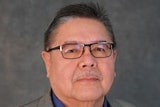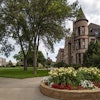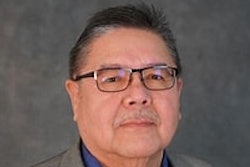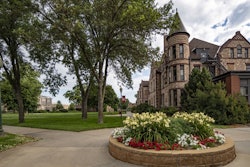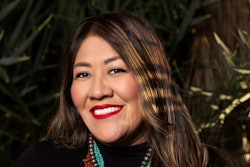Tribal Leader Works to Repatriate Tribal Remains
CLINTON, Okla.
Tribal leaders in Oklahoma are continuing their efforts to repatriate thousands of ancestral remains being housed in museum and university collections nationwide.
“Most of the elders will tell you the spirits of those who are there in those museums and universities are wandering,” says Lawrence Hart, executive director of the Cheyenne Cultural Center. “Those spirits will continue to wander until they are buried.”
The Cheyenne peace chief recently held a ground-blessing ceremony at the Clinton center, where a new regional cemetery for repatriated American Indians is under construction. The ceremony is part of a four-day educational conference titled “Cheyenne, Arapaho, Mennonite: Journey from Darlington.”
“I wanted to dedicate my time and energy to help repatriate those remains,” says Hart, 73. “So we’re establishing a regional cemetery and offering it for those listed as unidentified cultural remains.”
Since the creation of the Native American Graves Protection and Repatriation Act in 1990, officials have compiled a national database on American Indian human remains. Within that database, the bones of 111,238 people have been classified as “culturally unidentifiable.”
Carrie Wilson, working with the Quapaw and Osage tribes, is repatriating a group of ancestral remains from the Gilcrease Museum in Tulsa, Okla. The process began in 2000.
Wilson estimates she has retrieved 1,000 human remains from various archival collections in the past decade.
“When you think about all the struggles Indian people have gone through, and all the wrongs, and all the pain,” Wilson says, “then you think of returning them to the earth. Well, it can be very emotional. It’s just the right thing to do.”
© Copyright 2005 by DiverseEducation.com
